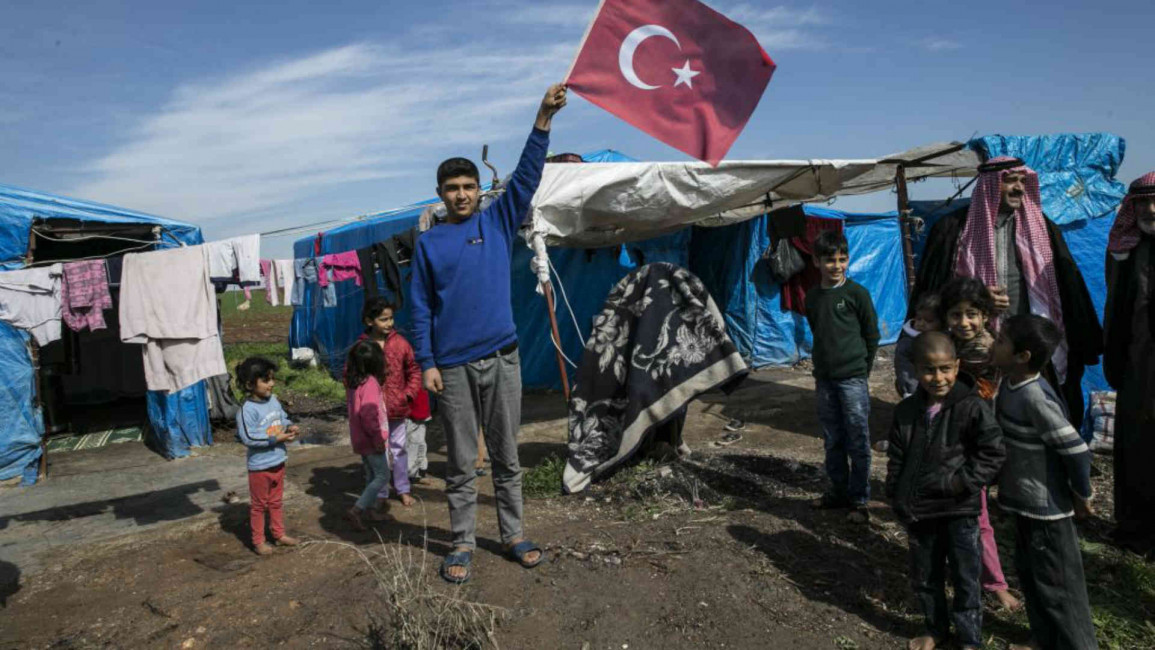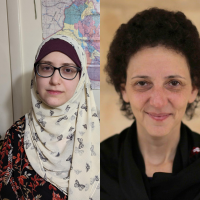
Erdogan's re-election is good news for Syrians in Turkey
One of the most crucial issues in the region, but for Turkey in particular, is the ongoing situation in Syria and the plight of Syrian refugees.
Over the course of the seven years of the genocidal, counter-revolutionary conflict, Assad, Iran and Russia have cleansed over six million Syrians, forcing them to flee to neighbouring countries.
The single largest quantity - now almost four million souls - have found relative safety in Turkey, which hosts vast refugee camps that have essentially transformed into sometimes burgeoning towns, with thousands of businesses springing up as Syrians try to live as normal a life possible outside of their homeland.
Turkey has done more than any other nation to provide aid not simply to Syrian refugees, but also to internally displaced persons. All in all, the country is thought to have aided up to 13 million Syrians affected by the war.
In addition to this, Turkey has provided military aid to Syrians seeking to overthrow the Assad regime and defend their land from foreign invaders, whether Iranian or Russian.
Given the dismal levels of indifference to the root cause of this catastrophe that has engulfed the Syrian people - namely Assad, Iran and Russia's genocidal war effort to pacify a popular revolution - Turkey's aid to Syrians has been precious.
 |
Turkey has done more than any other nation to provide aid to Syrian refugees and internally displaced persons |  |
Were it not for Turkey's society-wide effort to aid Syrian refugees, the greatest humanitarian disaster since World War II would be even even worse.
But not everything is rosy for Syrians in Turkey.
Aside from problems they face concerning family reunification and often subpar living standards, the greatest fear has been a racist backlash against their very presence in Turkey.
The main opposition forces in Turkey have been ramping up rhetoric and racist propaganda against Syrians to cultivate and exploit racism. The CHP, the single largest opposition party and the main force in the 'Nation Alliance', launched a social media campaign claiming Syrian refugees are forcing up the rent prices, stealing the jobs of and, perhaps most sinister, threatening the security of Turks (eliding Syrian refugees with IS is not uncommon).
Read more: Turkey's HDP radically reclaims women's place in society
Most of this will sound familiar to readers from the UK who saw those three basic racist arguments utilised so well in the Brexit referendum, as well as those in the US who continue to witness Trump's racist exploitation of 'immigrants' and asylum seekers.
The rise of this kind of racism attached to the revitalisation of the far and populist Right is a global phenomenon, but its spectre hangs most maliciously over Europe and the West.
Twitter Post
|
Indeed, it was during a recent opposition rally that the presidential candidate of the CHP said that he would send four million Syrians back to Syria, which prompted ominous celebrations from the huge crowd.
This call to simply send all Syrian refugees back to Turkey was echoed by Meral Aksener, presidential candidate of the CHP's electoral allies the IYI (Good) Party.
She claimed that the $36 billion spent on Syrian refugees ought to be spent on Turks instead, also claiming that the AKP "have intervened in Syria's internal politics and then we had 4 million Syrian refugees… all citizens are free and happy in their own country… after I am elected, my first action will be to fix our relations with Syria and to send the 4 million [Syrians]… back to their countries."
And Aksener's will to blame the AKP for the situation in Syria and her vow to "fix our relations with Syria" (meaning Assad's genocidal rump state) was one of the main fears for Syrians in Turkey.
Dani Qappani, a Syrian refugee and activist living in Turkey said that while he wasn't scared about being sent back to Syria due to the good relations and social solidarity between Syrians and Turks, his main fear was the Turkish opposition triumphing and normalising relations with Assad.
 |
Turkey has provided military aid to Syrians seeking to overthrow the Assad regime |  |
"What many of us fear is how the opposition deals with the situation in Syria," Dani tells me. "We fear they will deal with Assad again give up defending the Syrian revolution."
Dani was correct to believe that the opposition would have completely changed Turkish policy towards a more conciliatory approach with Assad, with the Ince saying that he feels no antipathy towards the genocidal tyrant Assad and that coming to terms with his regime is the only way to ensure Syrians can leave Turkey.
Twitter Post
|
Kemal Kilicdaroglu, the leader of the CHP, also claimed that Turkey must work with and embrace Assad, Russia and Iran to "establish peace".
It goes without saying that the 'peace' they have in mind simply means the genocidal triumph of Assad. The AKP's policy on Syria is open to much criticism, but under their governance Turkey remains the only force willing to "defend the revolution", as Dani puts it.
It's thanks to Erdogan's will to enforce a safe zone in Idlib, that Assad, Iran and Russia have not yet looked to conquer the last-remaining liberated province of Syria.
Turkish forces have aided Syrian rebels fighting al-Qaeda-related militants, hoping to remove Assad and Russia's pretext for mass murder and cleansing, and have provided weaponry to those forces resisting any attempts by the Assad axis to advance in the region.
In terms of Syria and Syrians, the AKP's victory can only be considered as a progressive outcome.
The AKP will need to rule with the ultra-nationalist MHP, who have in the past indulged anti-refugee rhetoric, but since growing closer to the AKP, they have moderated their stance. It fact, it's widely believed the MHP understand the question of Syrians to be non-negotiable in terms of concessions.
Syria is of course not the only or central issue for Turks or Kurds, but the genocide in Syria is the ground zero for Russian imperialist expansionism and Iranian hegemony over the region, with far-Right parties across Europe exploiting the so-called refugee crisis to gain power.
Erdogan and the AKP have come under rightful criticism for human rights abuses, but in the eyes of Syrians like Qappani while the "so-called 'Friends of Syria' disappoint and let Syrians down, Mr Erdogan seems to be a light in the darkness".
 |
The opposition would have completely changed Turkish policy towards a more conciliatory approach with Assad |  |
Qappani reminds me that while only 30,000 Syrian refugees can vote in the elections, the process itself is something they feel included in. "We can be part of something [democracy] that we only dreamt of in Syria," Dani says.
"I watched many Syrians gathering with Turkish people celebrating, and I saw many happy Syrians in the streets … all of them, I think, had tears in their eyes, the same as I had, because we deeply wanted this kind of democratic election to take place in Syria."
Sam Hamad is an independent Scottish-Egyptian activist and writer
Opinions expressed in this article remain those of the author and do not necessarily represent those of The New Arab, its editorial board or staff.




